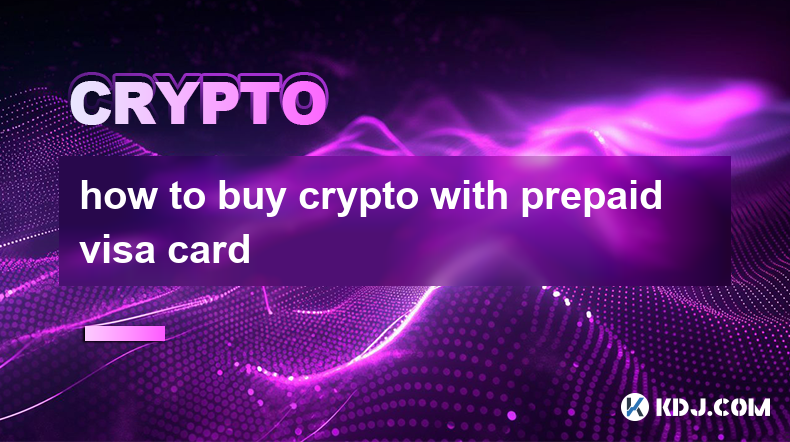-
 Bitcoin
Bitcoin $105,630.2656
2.49% -
 Ethereum
Ethereum $2,438.3027
-0.95% -
 Tether USDt
Tether USDt $1.0003
0.01% -
 XRP
XRP $2.3965
2.39% -
 BNB
BNB $646.6842
1.23% -
 Solana
Solana $169.6764
2.68% -
 USDC
USDC $0.9999
0.02% -
 Dogecoin
Dogecoin $0.2277
6.65% -
 Cardano
Cardano $0.7479
1.36% -
 TRON
TRON $0.2665
-1.16% -
 Sui
Sui $3.8362
1.43% -
 Chainlink
Chainlink $15.5885
2.29% -
 Avalanche
Avalanche $22.5762
2.14% -
 Stellar
Stellar $0.2891
1.65% -
 Hyperliquid
Hyperliquid $26.5919
3.28% -
 Shiba Inu
Shiba Inu $0.0...01465
4.01% -
 Hedera
Hedera $0.1939
2.22% -
 Bitcoin Cash
Bitcoin Cash $403.4303
3.45% -
 UNUS SED LEO
UNUS SED LEO $8.6744
-3.01% -
 Toncoin
Toncoin $3.1288
1.96% -
 Litecoin
Litecoin $99.0661
3.30% -
 Polkadot
Polkadot $4.6835
1.99% -
 Monero
Monero $337.8153
1.07% -
 Bitget Token
Bitget Token $5.1530
3.87% -
 Pepe
Pepe $0.0...01327
10.07% -
 Dai
Dai $0.9999
0.00% -
 Pi
Pi $0.7447
8.18% -
 Ethena USDe
Ethena USDe $1.0007
0.01% -
 Uniswap
Uniswap $5.9472
4.52% -
 Bittensor
Bittensor $417.1283
-0.62%
how to buy crypto with prepaid visa card
Buying crypto with a prepaid Visa card requires creating an account at a reputable exchange, providing personal information, funding the account, selecting a cryptocurrency, specifying the amount, and confirming the purchase, considering fees and security measures.
Jan 29, 2025 at 01:00 pm

Key Points:
- Understand the basics of buying crypto with a prepaid Visa card.
- Know the available platforms and their pros and cons.
- Learn the step-by-step process for making a purchase.
- Be aware of fees and security measures.
- Explore potential exchange pitfalls to avoid.
How to Buy Crypto with a Prepaid Visa Card
1. Choose a Reputable Crypto Exchange
- Coinbase: Largest and most user-friendly exchange, supports 50+ cryptocurrencies.
- Binance: Advanced exchange with low fees and a wide coin selection (not available in all countries).
- Kraken: Secure exchange with a strong reputation and regulation compliance.
- Gemini: Easy-to-use platform with high security standards and a focus on beginner investors.
2. Create an Account and Verify Your Identity
- Sign up on the chosen exchange and provide personal details (name, email, address).
- Pass identity verification (KYC) by submitting government-issued ID documents.
3. Fund Your Account
- Select the "Buy Crypto" option on the exchange website.
- Choose "Prepaid Card" as the payment method.
- Enter the card details (number, expiration date, CVV).
- Verify the transaction and confirm the purchase.
4. Choose a Cryptocurrency
- Browse the supported cryptocurrencies and select the one you want to buy (e.g., Bitcoin, Ethereum, etc.).
5. Specify the Amount
- Enter the amount of crypto you want to purchase, either in your local currency (e.g., USD) or the crypto value (e.g., BTC).
6. Confirm the Purchase
- Review the transaction details, including the price, fees, and amount of crypto to be received.
- Click "Buy" to complete the purchase.
Fees and Security Considerations
- Prepaid Visa card purchases may incur processing fees from the exchange and the card issuer.
- Use a trusted and secure exchange that employs best practices.
- Enable two-factor authentication (2FA) to protect your account.
- Store your crypto in a hardware wallet or another secure storage option.
Potential Exchange Pitfalls
- High fees: Some exchanges charge excessive fees for prepaid card transactions.
- Limited availability: Not all exchanges support prepaid card payments.
- Scam platforms: Beware of fake or malicious exchanges that attempt to steal funds.
- Slow transaction times: Prepaid card purchases may have longer processing times compared to other payment methods.
FAQs:
Can I buy all cryptocurrencies with a prepaid Visa card?
- It depends on the exchange and its supported cryptocurrencies. Most exchanges offer a limited selection of coins that can be purchased with prepaid cards.
Why are there fees for prepaid card purchases?
- Prepaid cards may require higher transaction processing costs than other payment methods. Some exchanges pass these costs onto the buyer.
How long does it take to complete a prepaid card purchase?
- Processing times vary depending on the exchange and the card issuer. It may take 1-2 hours or up to 24 hours for the crypto to be credited to your account.
Is it safe to buy crypto with a prepaid Visa card?
- Using a reputable exchange and practicing good security measures (e.g., 2FA) can mitigate risks. However, prepaid cards have a higher risk of fraud compared to debit or credit cards.
Disclaimer:info@kdj.com
The information provided is not trading advice. kdj.com does not assume any responsibility for any investments made based on the information provided in this article. Cryptocurrencies are highly volatile and it is highly recommended that you invest with caution after thorough research!
If you believe that the content used on this website infringes your copyright, please contact us immediately (info@kdj.com) and we will delete it promptly.
- Wyoming's New "Stable Token" Could Be Integrated Into Tik Tok
- 2025-05-19 07:10:12
- These 3 Crypto Coins Will Rally 5,000% Before Dogecoin Price Reaches $1
- 2025-05-19 07:10:12
- BTFD Coin (BTFD): The Bulls Are Charging, Will You Ride or Watch?
- 2025-05-19 07:05:13
- Best New Meme Coins to Invest in Now: BTFD’s 8900% ROI Presale Has Whales Jumping In as MOODENG and PENGU Ride the Hype
- 2025-05-19 07:05:13
- What Happens When Crypto Whales Stop Lurking and Start Buying? The Answer Might Just Be Unfolding in Real-Time
- 2025-05-19 07:00:13
- XRP Price Breakout Triggers Wider Bull Sentiments
- 2025-05-19 07:00:13
Related knowledge

What is Ethereum’s Slashing mechanism and how to punish malicious behavior?
Feb 20,2025 at 03:08am
Key PointsOverview of slashingDifferent types of slashing in EthereumIncentives and consequences of slashingIdentifying and reporting slashed validatorsOngoing discussions and potential improvementsEthereum's Slashing Mechanism: Punishing Malicious BehaviorEthereum's slashing mechanism is an essential tool for ensuring network security and punishing mal...

What is the verifier node of Ethereum and how to become a verifier?
Feb 19,2025 at 06:00pm
The Verifier Node of Ethereum: A Comprehensive GuideKey Points:What is a Verifier Node?How to Become a Verifier NodeResponsibilities and Rewards of a Verifier NodeMinimum Requirements for Becoming a Verifier NodePotential Difficulties in Running a Verifier Node1. What is a Verifier Node?A Verifier Node is an independent entity on the Ethereum network th...

What is Ethereum’s staking, and how to participate and earn money?
Feb 19,2025 at 04:37pm
Key Points:Understanding Ethereum's Staking MechanismSteps to Participate in StakingBenefits and Rewards of StakingSecurity and Risk ConsiderationsTechnical Requirements and Hardware OptionsPotential Challenges and Troubleshooting TipsFAQs on Ethereum StakingWhat is Ethereum's Staking?Proof-of-Stake (PoS) is a consensus mechanism used in blockchain netw...

What is Ethereum’s DAO (Decentralized Autonomous Organization) and how does it work?
Feb 20,2025 at 03:12am
Key PointsDefinition and Structure of a DAOGovernance and Decision-Making in DAOsBenefits and Use Cases of DAOsChallenges and Limitations of DAOsWhat is Ethereum's DAO (Decentralized Autonomous Organization) and How Does It Work?Definition and Structure of a DAOA Decentralized Autonomous Organization (DAO) is an innovative governance and management fram...

What is Ethereum's multi-signature wallet and how to improve security?
Feb 20,2025 at 02:18pm
Key Points:Understanding the Concept of a Multi-Signature WalletBenefits and Drawbacks of Multisig WalletsRequirements for Setting Up a Multisig WalletStep-by-Step Guide to Generating a Multisig WalletImplementing Strategies for Enhanced Security1. Understanding the Concept of a Multi-Signature WalletA multi-signature (multisig) wallet in the Ethereum e...

What is Ethereum's oracle and how to provide data for smart contracts?
Feb 21,2025 at 01:30am
Key Points:Understanding the concept of oracles in EthereumExploring different types of oraclesDetailed guide on how to provide data for smart contractsAddressing potential challenges and considerationsWhat is Ethereum's Oracle?Oracles are crucial components in the Ethereum ecosystem, enabling smart contracts to access real-world data and off-chain even...

What is Ethereum’s Slashing mechanism and how to punish malicious behavior?
Feb 20,2025 at 03:08am
Key PointsOverview of slashingDifferent types of slashing in EthereumIncentives and consequences of slashingIdentifying and reporting slashed validatorsOngoing discussions and potential improvementsEthereum's Slashing Mechanism: Punishing Malicious BehaviorEthereum's slashing mechanism is an essential tool for ensuring network security and punishing mal...

What is the verifier node of Ethereum and how to become a verifier?
Feb 19,2025 at 06:00pm
The Verifier Node of Ethereum: A Comprehensive GuideKey Points:What is a Verifier Node?How to Become a Verifier NodeResponsibilities and Rewards of a Verifier NodeMinimum Requirements for Becoming a Verifier NodePotential Difficulties in Running a Verifier Node1. What is a Verifier Node?A Verifier Node is an independent entity on the Ethereum network th...

What is Ethereum’s staking, and how to participate and earn money?
Feb 19,2025 at 04:37pm
Key Points:Understanding Ethereum's Staking MechanismSteps to Participate in StakingBenefits and Rewards of StakingSecurity and Risk ConsiderationsTechnical Requirements and Hardware OptionsPotential Challenges and Troubleshooting TipsFAQs on Ethereum StakingWhat is Ethereum's Staking?Proof-of-Stake (PoS) is a consensus mechanism used in blockchain netw...

What is Ethereum’s DAO (Decentralized Autonomous Organization) and how does it work?
Feb 20,2025 at 03:12am
Key PointsDefinition and Structure of a DAOGovernance and Decision-Making in DAOsBenefits and Use Cases of DAOsChallenges and Limitations of DAOsWhat is Ethereum's DAO (Decentralized Autonomous Organization) and How Does It Work?Definition and Structure of a DAOA Decentralized Autonomous Organization (DAO) is an innovative governance and management fram...

What is Ethereum's multi-signature wallet and how to improve security?
Feb 20,2025 at 02:18pm
Key Points:Understanding the Concept of a Multi-Signature WalletBenefits and Drawbacks of Multisig WalletsRequirements for Setting Up a Multisig WalletStep-by-Step Guide to Generating a Multisig WalletImplementing Strategies for Enhanced Security1. Understanding the Concept of a Multi-Signature WalletA multi-signature (multisig) wallet in the Ethereum e...

What is Ethereum's oracle and how to provide data for smart contracts?
Feb 21,2025 at 01:30am
Key Points:Understanding the concept of oracles in EthereumExploring different types of oraclesDetailed guide on how to provide data for smart contractsAddressing potential challenges and considerationsWhat is Ethereum's Oracle?Oracles are crucial components in the Ethereum ecosystem, enabling smart contracts to access real-world data and off-chain even...
See all articles
























































































